Dying Maine woman, 35, reveals her last wish after overcoming addiction, homelessness
SCARBOROUGH, Maine — Carmelita Edgecombe has strings of lights dangling on the wall behind her bed in her room at the Gosnell Memorial Hospice House. The lights react to sound, flickering whenever she speaks and outright sparkling as music plays.
“There is no sadness in this room,” Edgecombe says.
Tears, yes. Even some anger about her circumstances. Her life has not been easy.
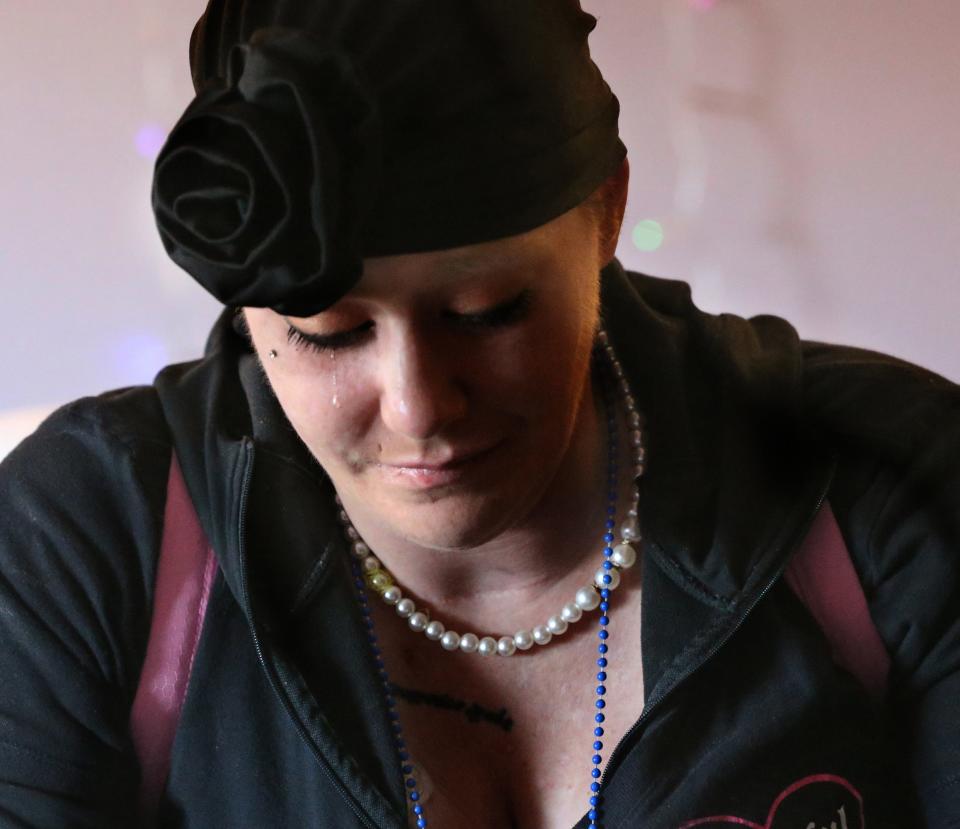
Edgecombe, of Wells, is battling cervical cancer after surviving years of drug addiction, bouts of homelessness, the loss of a loved one, a car accident that led to reconstructive surgery, some estrangement from her family, and even difficulties with the law, including a drug-related charge a few years ago.
And now, she says, she doesn't have long to live. She’s 35.
But when Edgecombe says there is no sadness in her room at Gosnell, she by all appearances means it.
Following a spiritual awakening a couple of years ago, she said she has made her peace with God and sees her approaching departure as “coming home.”
“I have been married. I have been divorced. I have had love that others could never imagine. I’ve done things that nobody should ever do,” she said, as she sat on her bed at Gosnell. “I’ve lived about a thousand lives. As far as me being ready, I’m good.”
She’s proud of overcoming an addiction to opioids she says started when they were prescribed to her to alleviate the pain of physical struggles she has endured, including fibromyalgia and rheumatoid arthritis. Specifically, she is proud she has been sober for more than a year and has kept her mind sharp and clear for her two children, ages 13 and 11.
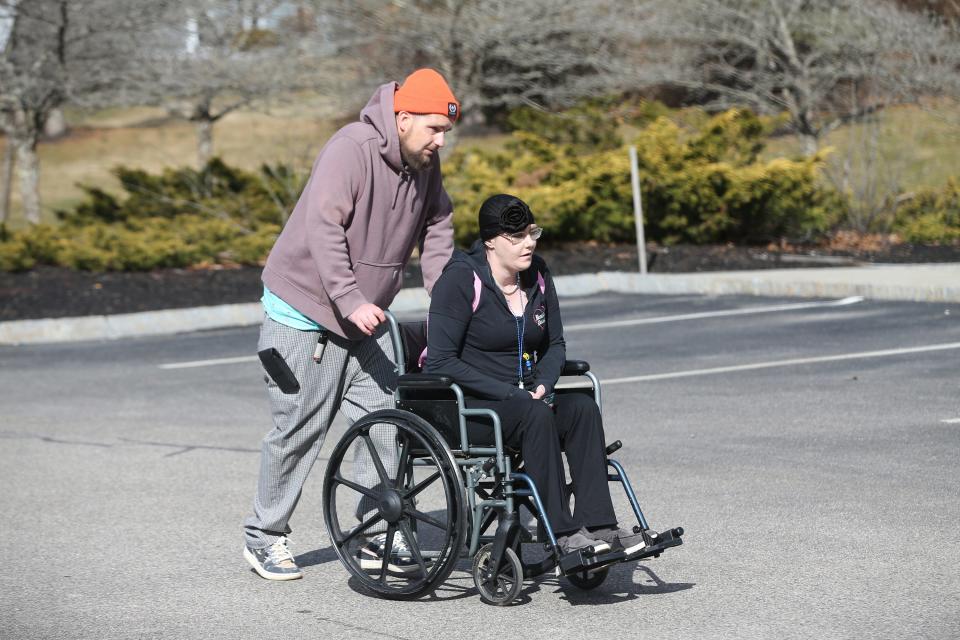
“I clawed my way back from hell,” she said. “My problem is that now I don’t get to reap the benefits.”
Edgecombe did the hard work of recovery, but she shares the credit of her achievement with one individual who has made a difference in these final stages of her life: Lacey Bailey, an overdose-prevention clinician who is one of the four members of the Sanford Police Department’s mental health unit.
“She believed in me,” Edgecombe said. “I’m going home with a free heart ... because one person believed in me. All it took for me was one person.”
'Dream come true': Maine couple who spent 10 months homeless in woods get new apartment
Sanford police Mental Health Unit answers call
Last year, when she found herself homeless in Sanford, sickened by chemotherapy, and agonized by a mounting desire for a fix that would end her sobriety, Edgecombe had a choice to make. She could give in to her body and score some heroin, which she knew was cheaper per day than a single pill she had once been prescribed. Or she could call for help, even if that meant that, well, she’d have to go to jail on five outstanding warrants.
She made the call.
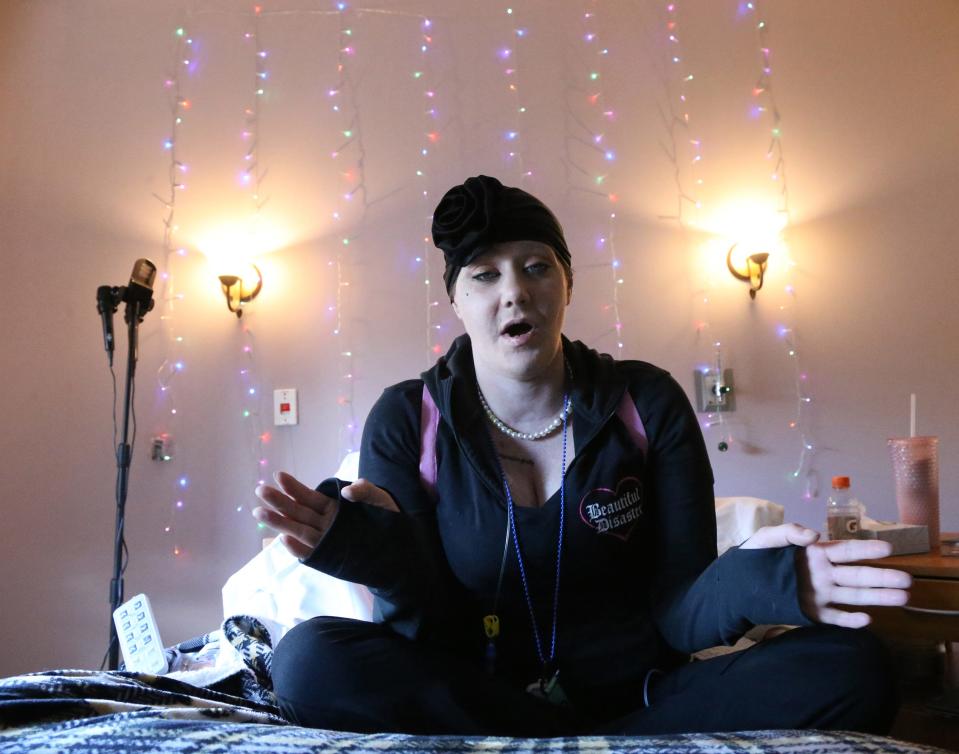
She spoke with Sanford police Detective Colleen Adams, who heads the mental health unit. She had become acquainted with Adams months earlier, when Adams had visited local homeless individuals to see how they were doing and whether they needed anything. It was that one visit that helped Edgecombe feel confident she could call Adams for help.
Edgecombe explained she wanted, badly, to use drugs to take the edge off her physical pain and numb herself to her life’s circumstances. She told Adams she needed to be someplace secure, where she could be supervised and cut off from the impulse she was battling.
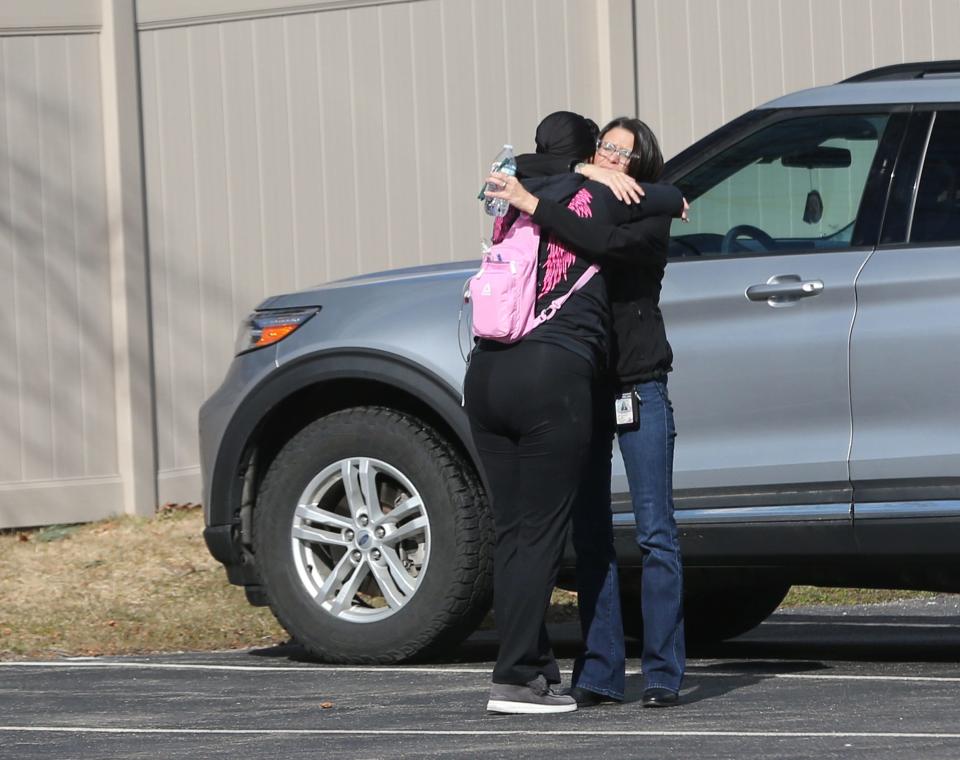
Ideally, she could go to a shelter. Acknowledging that she had a few warrants out on her, though, Edgecombe said even a jail cell would do, if it meant she could be safe and keep her mind and body clean.
Adams tried to find space at a local shelter. There was not any available. There are hundreds of unhoused people in York County, and only a few dozen shelter beds to accommodate them.
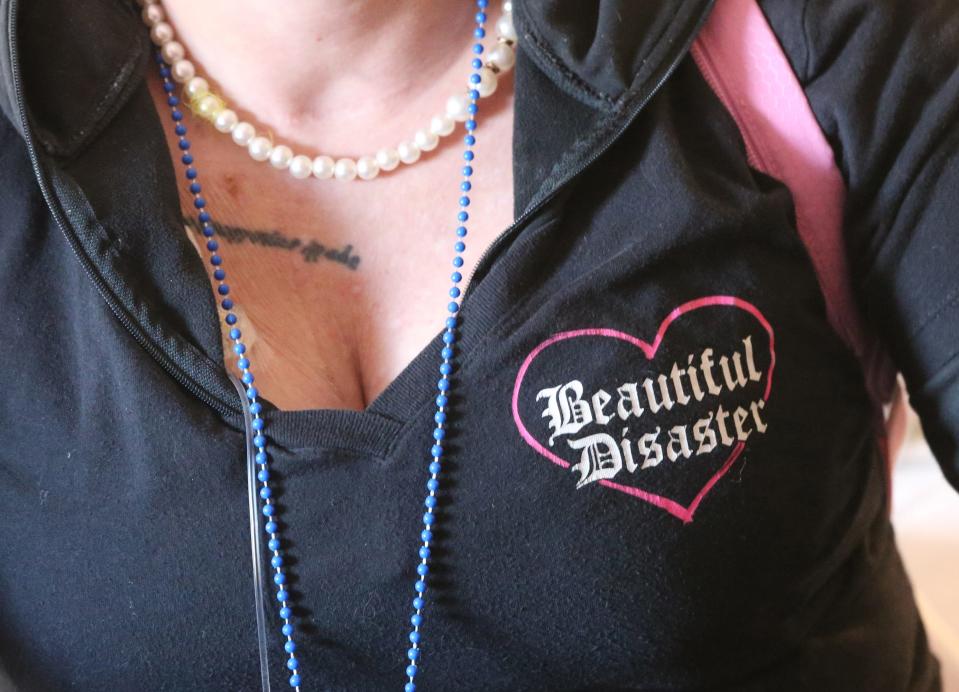
So for Edgecombe that meant ... jail?
Edgecombe told Adams she’d call back in five minutes. She had to think things through.
“I smoked a cigarette,” she said. “I took a deep breath. I got down on my knees and prayed.”
She realized, she said, that if there is anything she had to offer her two children, it was her mind. Even if those five warrants led to prison time, her mind would be drug-free and clear for her children, so that she could talk with them, write to them, and more.
Sure enough, five minutes later, Edgecombe called Adams. She said, “Send ‘em down.”
She was talking about the police.
And they came. Though he had backup some distance away, a single officer approached Edgecombe, arrested her, and brought her to the local jail in Alfred, where she found safety from herself and kept her sobriety streak going.
While at the jail, Edgecombe met Bailey, who went there to help her. With some time, Edgecombe was able to work through her legal troubles and, with the help of Bailey and the local mental health unit, she was able to get shelter and assistance.
Sanford homeless crisis: How city police's Mental Health Unit is helping hundreds in need
Her final message: Help others 'climb out of hell'
As a result of calling the mental health unit that fateful day, Edgecombe found the one thing that she says everybody needs to survive their darkest trials in life: a single person who cares, who lets you know that you have value, that you matter.
For Edgecombe, that person is Bailey.
And the feeling is mutual. While visiting Edgecombe at Gosnell on March 18, Bailey spoke of Edgecombe’s spirit, perseverance, and desire to make a difference.
“Despite all her struggles, there’s this massive amount of compassion that she has for other people,” Bailey said. “I think she has probably put her needs aside to be there for others for much of her life.”
Sitting on her bed at Gosnell, Edgecombe looked at Bailey and expressed regret she would not live to help her and her colleagues in their efforts to improve the mental health of those who are suffering in Sanford and surrounding communities.
“I have so many ideas, Lacey,” she told Bailey. “I have so many ideas I wanted to do with you.”
She has written down some of her ideas to advocate for mental health and has saved them on her laptop.
“If there is a last thing that I do, it’s to make sure that everybody understands that there’s a deficit — a huge deficit — in the area,” she said. “There are people like me who are willing to literally do absolutely anything to make sure that they can climb out of hell. They are still there. There is a lot more work that needs to be done.”
Edgecombe said more resources are needed for the Sanford Police Department’s mental health unit, for the “work that my beautiful, beautiful friends are doing,” and others throughout the state who are helping those who are un-housed and struggling with addiction. She said she knows a lot of people living in homeless encampments throughout Sanford who would benefit from the care and connection of a well-funded and well-staffed mental health system.
“On my death bed, I get to say I succeeded,” Edgecombe said, fighting back tears. “There are so many people who aren’t going to be able to say that.”
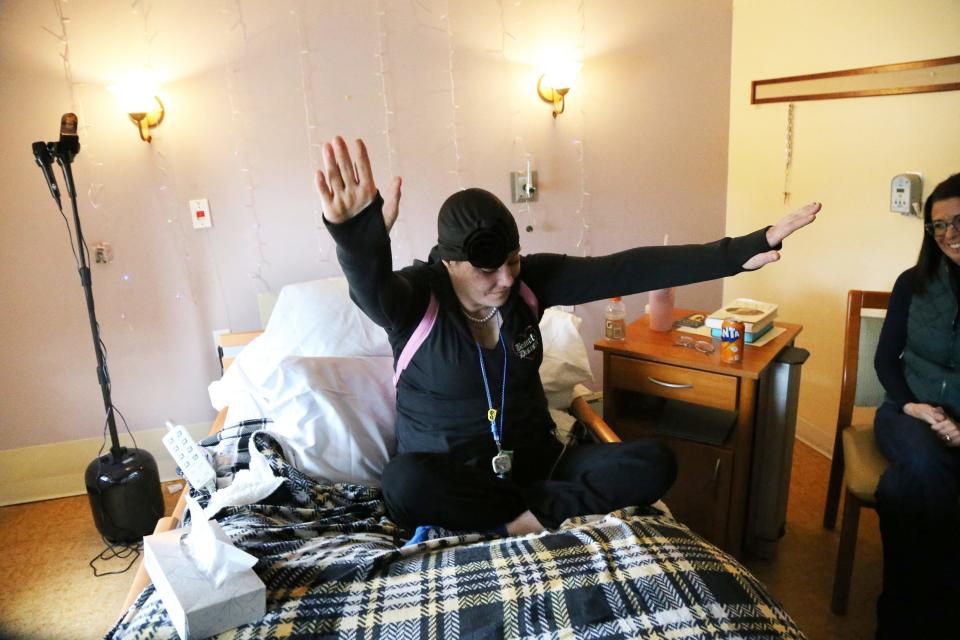
Edgecombe said people who are homeless or are struggling with addiction are indeed looking for work, for a purpose, for just one person to give them a chance. She suggested there is work in Sanford that needs to be done, and these individuals could help do it.
“If you give one of those gentlemen, or one of those women, a sense of purpose, the amount of work that can be done is insanity,” she said.
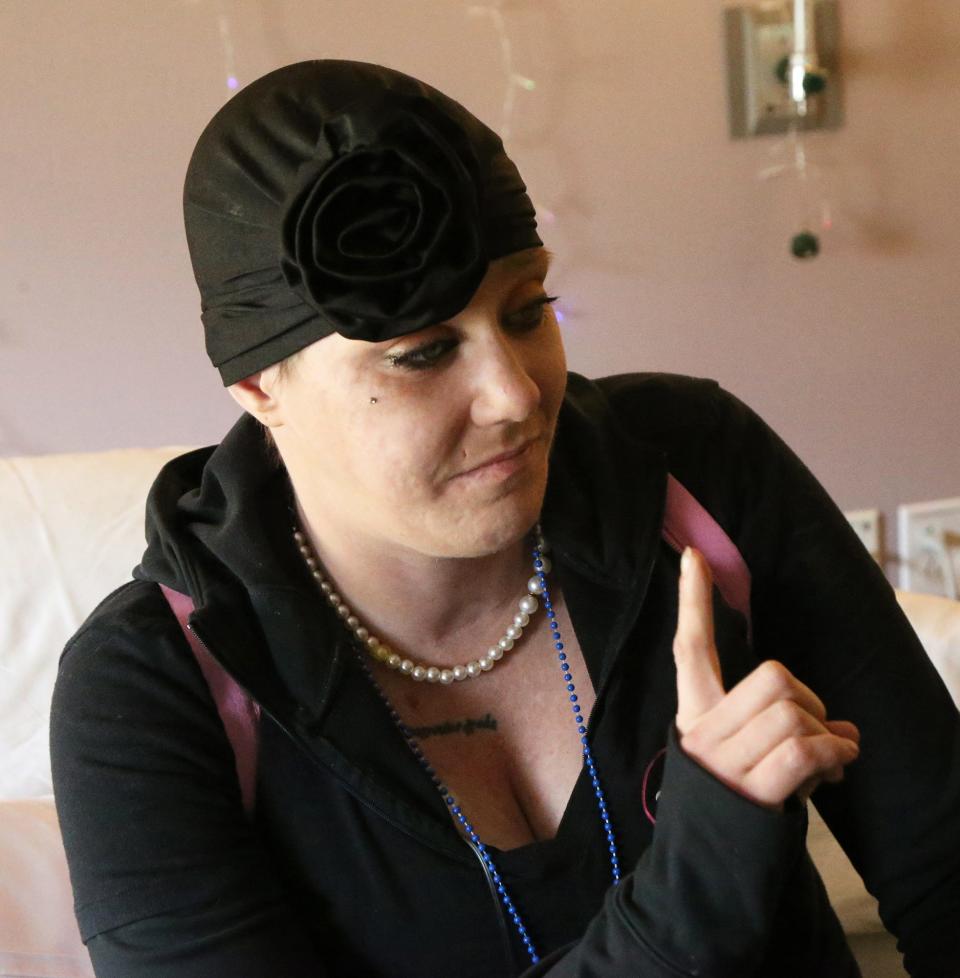
Out of her room and in the cool air and sunshine of the late morning, Edgecombe sat in her wheelchair, wrapped in a warm blanket. She reflected on her life in recent years, and the way she was able to beat her demons and find peace with herself.
“I did it,” she said, with notes of triumph and relief in her voice.
Then, after a pause, Edgecombe turned and looked up at Bailey, who was standing nearby. She amended her previous statement.
“We did it.”
This article originally appeared on Portsmouth Herald: Maine woman who overcame addiction, homelessness dying of cancer

